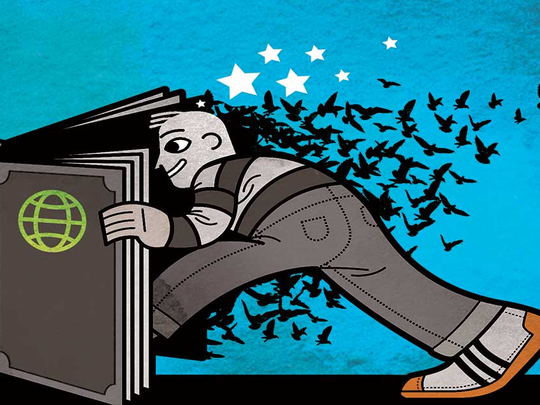
Several aspects of culture and its advantages have been addressed in detail, and its importance highlighted so often that any title, article or text, which holds a similar discussion seems like a repetition of what has been already said. However, several aspects of culture require more inquiry. Literature, for example, is a limitless cultural product that should be read in line with the social context within which it was written; its characteristics and requirements offer readers a different window of interpretation each time.
Literature is more a process of discovering people rather than gathering information. It is a two-way street. So, if we take stories out of the context of the authors’ personal experience, or if we isolate stories from the phase in history during which they were produced, their social and cultural background, or if we do not engage with a story as one of its characters, they tend to become meaningless. They are the product of a process in which authors mediate between themselves and their nations, between their nations and other nations. Biographies of heroes and historical personalities are in fact biographies of nations and their struggles, ambitions, dreams and sufferings. Therefore, it is important to know ‘How’ and ‘Why’, rather than the ‘What’ of reading and writing. We read to discover others and write to be discovered by others. People invented books to defy mortality, not to be forgotten, and most importantly to not remain unknown.
There is a dire need to restore this function of culture and books, because reading to understand the others helps us fight hatred, extremism and the denial of people who we do not know. It is always easier to hate the unknown even if there are insufficient grounds for such hatred. We tend to be indifferent to the sufferings and agony of someone we do not know, because we tend to stick to what is familiar, even if the basis for such familiarity is a coincidence; proof that chance plays a big role in forming the active conscience of mankind and determines the nature of their relations with others.
This concept of culture aligns with Sharjah’s vision under the leadership of His Highness Dr Shaikh Sultan Bin Mohammad Al Qasimi, Member of the Supreme Council and Ruler of Sharjah, and the purposeful role it has been playing in building Sharjah’s international relations for decades, exemplified by Sharjah’s selection as Sao Paulo International Book Fair’s guest of honour this year, Paris Book Fair’s special guest last year, and New Delhi International Book Fair and Turin Book Fair’s guest of honour in 2019. Sharjah’s international presence is a winning example of how geographic and linguistic barriers imposed by ‘coincidence’ can be transcended with pure human will.
We must develop the way we handle differences, and if we really understand it, we will discover that it exemplifies the gems and beauty of human culture. Imagine that you are looking at a painting that has one colour throughout. It won’t be beautiful unless the image is made of colourful contrasts. Is not this difference the reason for our fascination with music, poetry and songs, for instance? Aren’t we happy to listen to Latin, Asian or European songs? Do we not enjoy poems when we feel joy, sadness, pain or when we are in love? Do we resist enjoying short stories and novels from around the world? Is it logical to like titles written by certain authors on the one hand, and not to like those authors on the other hand? How would the diplomatic, political and economic relations between countries succeed without knowing each other’s history, heritage and culture?
An irreplaceable platform
A visit to Sharjah’s colourful pavilion at the Sao Paulo International Book Fair would have been enough to answer these questions — seeing the engagement of the Brazilian audience and their passion to read our books and explore our heritage and culture. We witnessed a beautiful cultural harmony between the UAE and Brazil during the days of the fair, and are certain that this exchange will continue. The event reinforced the importance of culture as an irreplaceable platform to promote dialogue. The UAE has reached yet another milestone in promoting a culture of openness through poetry, prose, literature, music and heritage.
The UAE is home to more than 200 nationalities, living and working in harmony and coexistence. We celebrate all the festivals together; gather at restaurants and have free conversations at work or in public places. By making cultural exploration a part and parcel of our daily lives, we add new dimensions to our relationships all the time. I encourage this practice be taken up at a global level so that the ‘other’ doesn’t remain so for long.
Culture is the most human way of facilitating dialogue and exchange, and one of the finest and most conscious methods people have created to communicate. If culture doesn’t go beyond coincidence, it will not be able to carry out its essential function.
Fahim bin Sultan Al Qasimi is Executive Chairman of the Department of Government Relations in Sharjah.










